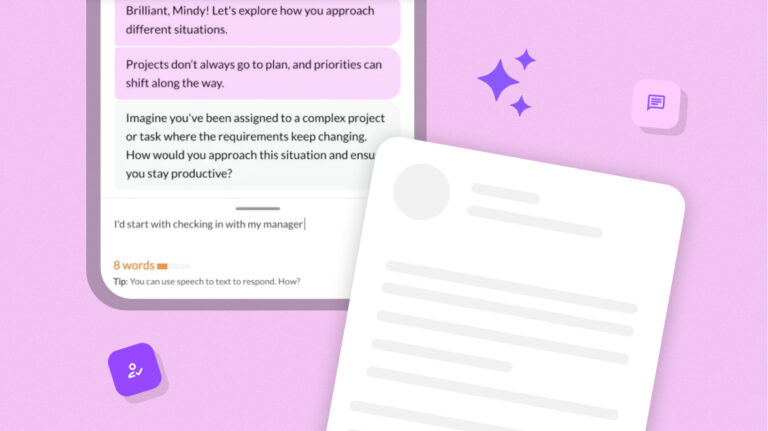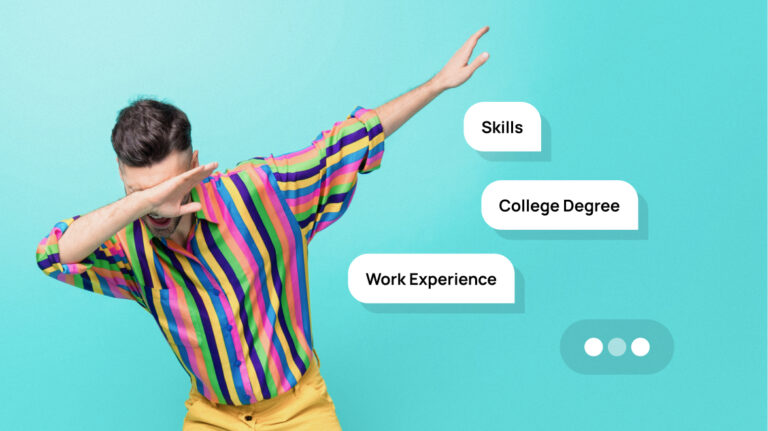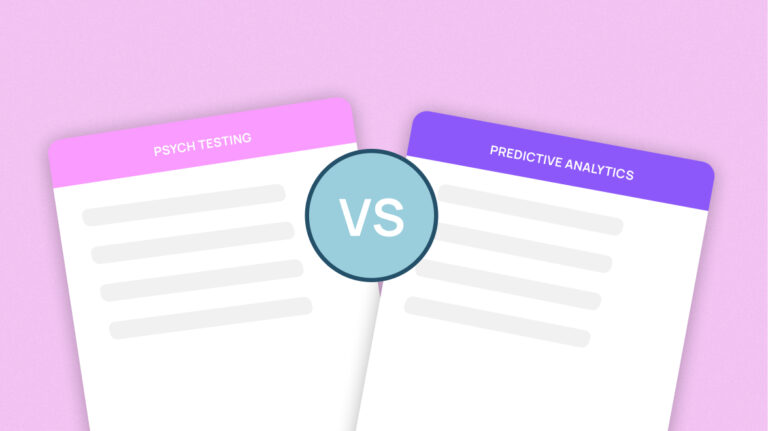Two critical factors that will simplify recruitment AI implementation

The first is that you cannot just think about bringing AI as a tool. It’s not that simple, even though ChatGPT makes it seem so. You can’t just go out there and buy something with AI because the board is pressuring you to start doing something with AI.You actually have to really understand the business that you’re supporting and what their biggest problem or their three biggest problems are.
Most likely, the solution that you bring to bear is going to have an AI component because AI is such a powerful accelerant to deliver productivity to recruiters, your HR people, and to the business. But you’ve got to figure out what that business problem is first.
Do you have an issue with churn? Values? Hire quality? General speed to hire? Candidate experience? The first step is setting out exactly what you need from an AI system, and going to market with that objective in mind.
Take candidate experience: According to this 2022 report by Aptitude Research, 63% of companies aren’t planning on doing anything about candidate experience in 2023.
That’s a great place to start.
Is your team ready for AI?
The second thing is that you’ve got to be really honest and hold the mirror up to you, your team, and the organization on whether or not you’re ready to embrace technology that has AI in it.
There is a lot of investigation and due diligence required for any company bringing in AI. And there are elements around privacy, as well as US regulations that you need to comply with.
You need to have a level of maturity and sophistication and awareness about the effort that you’re going to have to put the organization through to really embrace and adopt it.
That very much starts with your team and your people: are they ready to embrace the opportunity of AI?
Right now, I find that many companies and recruiters are very fearful of it. They’re worried about what it will do to their jobs.
They don’t think of it as a co-pilot; they think of it as a replacement.
So, I would encourage you to start having conversations with your team as early as possible about the opportunity that AI could bring before you ram an AI solution down their throat, which is likely to face some resistance.
Easing the fear of AI for recruitment
It’s no wonder recruiters and organizations approach AI with fear. The media has been quick to paint it as a Doomsday creator, destined to put 300 million people out of work.
Just as computers did not make millions of people redundant, nor will smart AI systems. They’re force multipliers. The stats prove this.
According to this article, recruiters have embraced partial AI innovation with great results. 94% said it has improved their hiring processes. 44% said it helps recruiters save time.
42% think that it will help recruiters be more strategic. This stat is particularly interesting to us, because we care first and foremost about giving recruiters time back to focus on deep people strategy.
Save time, and replace it with measurable effectiveness
There’s nothing to fear if you can see that your chosen AI solution is improving hiring outcomes, while also giving you time back to focus on strategy.
Smart Chat Interviewing technology uses structured interviews to deliver fair and comparable insights on all candidates: Soft skills, hard skills, and cognitive ability. According to time-honored research by Frank Schmidt and John Hunter, structured interviews are the best explainer of performance on the job (26%).
Structured interviews are hard for humans to do – especially across decentralized networks – but the complete objectivity of the right AI makes it perfect for this job.
The proof? Sapia.ai has helped its customers achieve a 25% decrease in employee turnover through better interviewing. It does this because it can accurately match people to the roles for which they’re best suited.
Take Woolworths Supermarkets, Australia’s largest private employer. Using Sapia.ai’s Smart Chat Interviewer, Woolworths interviews 1 million people per year and hires 50,000 people per year.
Hiring managers are happy, and the in-house Talent Acquisition team has more purpose than ever before. No one has lost their job due to AI. Candidates are happier, staff are happier.


